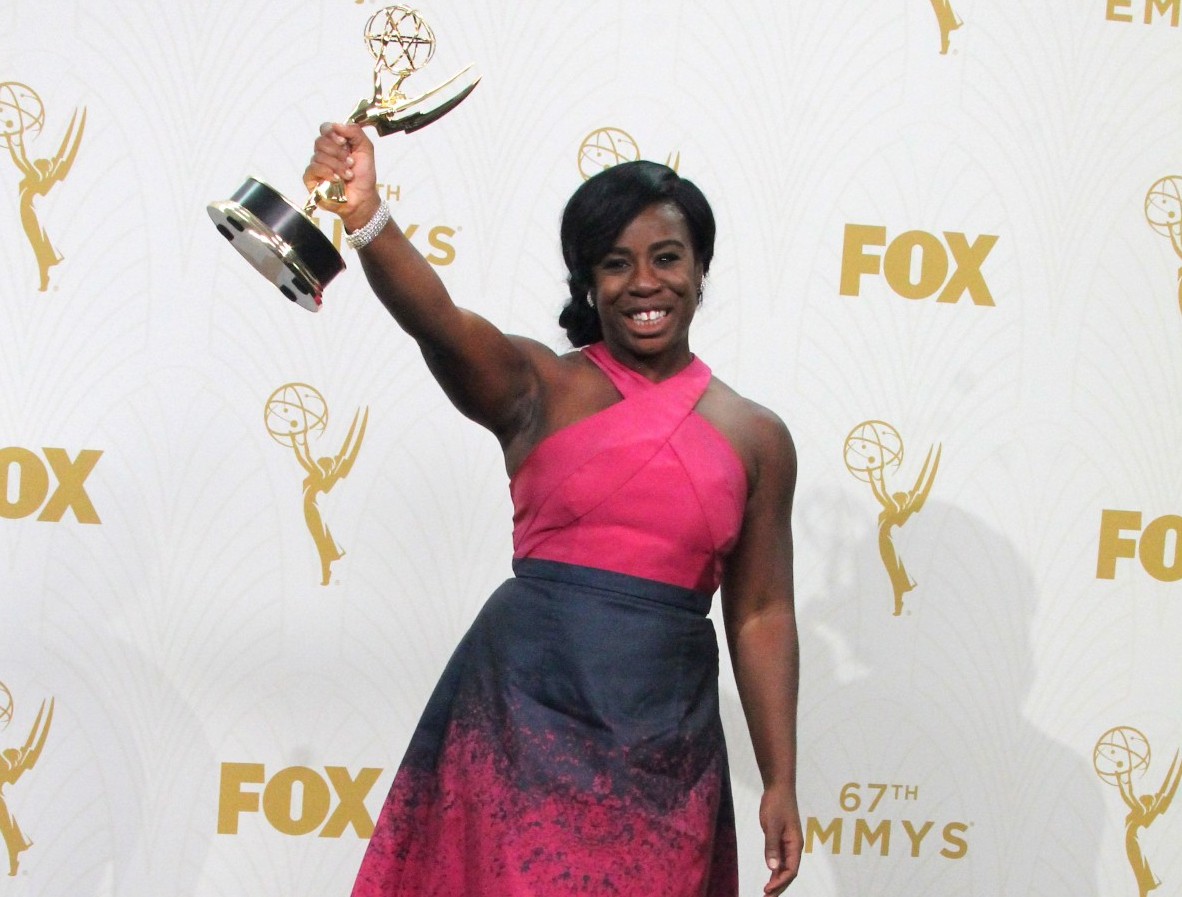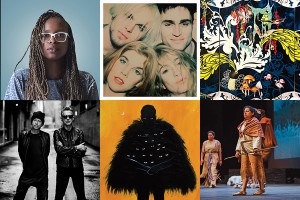Uzo Aduba: It’s ‘Foolish’ to Believe Orange Is the New Black Has Solved TV’s Diversity Problem

Photo by Helga Esteb / Shutterstock.com
Recent Emmy winner and Orange Is the New Black star Uzo Aduba opened up about her thoughts on television’s diversity problem during a panel discussion on Tuesday morning.
The Medfield native joined Unbreakable Kimmy Schmidt’s Tituss Burgess and fellow OITNB cast member Dascha Polanco for the roundtable chat, which was a part of the annual Advertising Week festivities in New York.
According to Time, Aduba was asked whether her hit Netflix series would still need to feature an attractive, white female protagonist in order to bring in eyeballs if OITNB debuted in 2015 instead of 2013. The BU alum responded by saying “Probably,” and that it’d be unwise to think that the show has solved TV’s diversity dilemma in the short amount it’s been on the air.
“I think it would be perhaps foolish, I might say, or presumptuous, to believe or assume that in three plus years of television, all the progress that needed to be made had been conquered in that time through a singular show,” Aduba said.
The actress added that she thinks “we will get there,” but it’s going to take some time.
While there’s still a ways to go, the panel agreed that the small screen is getting better at showcasing more diverse characters and stories.
For example, How to Get Away with Murder star Viola Davis made history at last week’s Emmy Awards by becoming the first African American woman to win Best Actress in a Drama Series. There are also a slew of new shows featuring diverse casts, including the popular Fox drama Empire and ABC comedies like Black-ish and Fresh Off the Boat.
When asked about what the landscape of the industry will look like in five years, Aduba seemed optimistic about the future of TV.
“Audiences are ready for the truth and whatever that truth might look like, physically, internally,” she said. “It’s really exciting to see now that television is investing in the truth, authentic representation as an extension of that, and writers are actually excited by that. And I think what’s really wonderful is that audiences themselves are finding themselves excited by it.”


